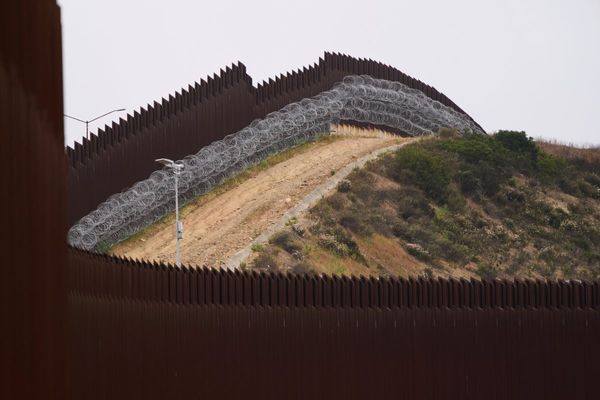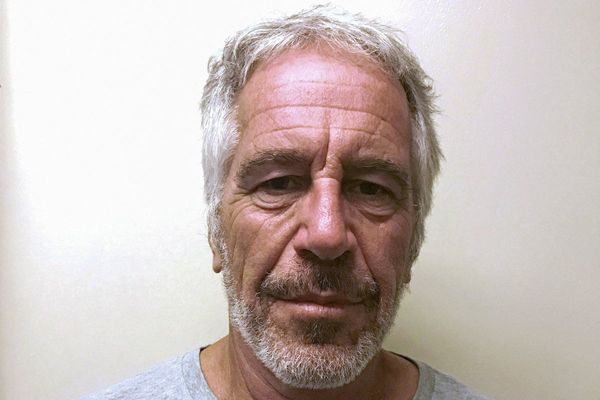There are parallels between China’s actions at the Line of Actual Control (LAC) and its tensions between China and the US over Taiwan, says former Australian Prime Minister and China watcher Kevin Rudd. Mr. Rudd, who is the author of a new book, “The Avoidable War: The Dangers of a Catastrophic Conflict between the U.S. and Xi Jinping’s China”, is also the President of the Asia Society, and is in Delhi for the launch of a new policy institute, to be inaugurated by External Affairs Minister S. Jaishankar in Delhi on Monday.
How do you see U.S. and China tensions over Taiwan?
My analysis is that Xi Jinping’s China is different in two fundamental ways. The first is that the balance of power has changed between China and the United States: militarily, economically, and technologically. The second is the particular agency of Xi Jinping’s leadership. Xi Jinping is not a “status quo” politician, he is a “let's change the game” politician, [focused on] China's national ambitions to be the preeminent regional and global power by 2049 and to reincorporate Taiwan on the way through. Since 2017, United States has recognized this challenge, named this challenge, and defined this relationship as one of strategic competition. And the winner of this competitive race is who either remains or becomes the dominant regional global power.
Is there a timeline, according to you for when Xi Jinping hopes to “reincorporate” Taiwan?
Xi Jinping has said that China's great ‘national rejuvenation’ cannot be achieved in the absence of Taiwan, And that programme has a timetable of 2049. Xi Jinping has also brought forward the date for the completion of China's military reform and modernization program from 2035 to 2027. In my judgment, Xi will automatically be reappointed as General Secretary of the Communist Party for a third term this October/November at the 20th Party Congress and that he's looking towards at least another three terms, taking him through to 2037. So what I'm most concerned about is, that China's internal timetable [for Taiwan] is likely to be late 2020s, early 2030s. I'm more concerned about crisis escalation, conflict and war by accident, between now and then.
In your book, where you write about the 10 concentric circles of Xi Jinping interests. Where do you think India fits in into those?
This is a analytical framework I've invented, it has no resonance really in the Chinese tradition. But I thought it was important to try and make sense to an international audience as to how in fact, I think the standing committee of the Politburo headed by Xi Jinping looks at the world in a series of sets of priorities moving from the center out: some are more important than others. Obviously, within that 10 concentric circles of interest, the first four or five are largely domestic, and they're about the politics and economics and the security apparatus remaining in power. But when you start to move out from those concentric circles, it becomes of course, much more pronounced. There are two which particularly relate to India, and possibly three.
One is what I put as concentric circle number two, which is Xi Jinping said preoccupation with the politics and the military strategy of national unity. That's not just maintaining the unity of the nation, that’s securing unresolved territorial boundaries, whether it's with Taiwan, and the reincorporation of it, the South China Sea, the East China Sea, even a minor maritime border dispute with South Korea, and certainly with India. That's number one. I think if you look at what I describe as concentric circle eight, which is the use of the Belt ad Road initiative to extend China's overall economic and therefore political sphere of influence across the vast Eurasian continent, through Central Asia, through South Asia, into Eastern Europe, and eventually to Western Europe, in fact, through the Middle East into Africa, by simply becoming the indispensable economic power, or the indispensable infrastructure builder of Pan Eurasia. Under those circumstances, India obviously figures in this because India is not participant in it. But India's neighboring states, whether it's Bangladesh with Sri Lanka, we've seen most spectacularly with the Sri Lankan port, but also, of course, the China Pakistan Economic Corridor in Pakistan, Nepal and elsewhere.
If there's a final element of intersection with Indian interests, and India itself, it is of course, in the Chinese thinking about the reshaping of the international rules based system, and to do so in a manner which ultimately rolls back what China perceives to be an America centric international post world war two rules based system anchored in the UN anchored in the Bretton Woods institutions, but ultimately anchored in US Strategic power. And there there is a normative element to that, which is China's view of international law, and international rules, and the progressive stripping out by China of international human rights provisions based on the Universal Declaration of 1948, in which India proudly played a role.
Given this scenario, should India strengthen the quad Alliance quad arrangement with Australia, Japan and the United States, or keep the present balance as a member of the SCO and BRICS with Russia and China?
The two options available to India and other countries, given China’s assertiveness, is to bandwagon or to balance. I don't see it in India's nature to bandwagon with China, given the unresolved nature of the Sino-Indian border, therefore, the alternative strategic course, is balancing. The Quad obviously represents one fairly prominent example of balancing, by India, Japan, United States and Australia. AUKUS at a different level, reflects much the same dynamic. But also you see the hardening of the European Union and NATO in terms of strategic posture towards China as well.
Despite the LAC standoff since 2020, the Indian government has kept the door open for talks for military and Foreign Minister-level talks. Is this the way forward or do you see, like in Taiwan, a possible flashpoint?
After the border clashes of April-May of 2020, the Chinese, at least in one part of the border (at Ladakh), have chosen to double down, to build hard infrastructure behind those new positions, and rather than “tactically withdraw”, leave every evidence that China has consolidated. I think in terms of concrete, political and diplomatic messaging from the Chinese side, they are sending a clear message that China is not for turning back, and that it is in the process of prosecuting it's full territorial aspirations to the allowable strategic limit. And there, I see a clear analogy with South China Sea, Taiwan, East China Sea. As to India's response to that emerging new Chinese strategy which is more assertive, that of course, is a matter for the government in Delhi [to decide]. They've been dealing with this effectively since 1962, and effectively in a different way prior to 1962. And so it would not be appropriate for me to tell Delhi what to do.
Your book is called The avoidable war between U.S. and China. Do you think the conflict or the next conflict between India and China is avoidable as well?
I'm not sufficiently expert in the granularity of the border. But when you have multiple sub disputes along the border, an ongoing challenge in Kashmir, the unfolding dynamic of Pakistani politics, and Pakistan's “all weather” alliance with Beijing, I think [India and China] are in for a rocky period ahead. What I have seen though, however, is remarkable stability and maturity in Indian diplomacy to continue to find the off-ramps and there are a number within the Chinese system which are always looking for off ramps as well, even though the evidence on the ground so far, at least from Beijing's perspective is to push ahead.
There are now reports indicating a possible meeting between Prime Minister Modi and President Xi Jinping at international conferences like the SCO or the G-20. How effective could summitry be in resolving the issues?
The Chinese strategic culture is to observe what states do, not what they say. Therefore, concrete strategic behaviors, and actions by India on the border, or in its relationship with the United states, or its Quadrilateral relationship... these are the things which China observes, takes note of, and then analyzes in terms of how it should respond. And China respects strength and is contemptuous of weakness. So, summitry can be enormously powerful when it rests on those underlying realistic assumptions. Frankly, it's Xi Jinping that counts within the system, the rest of the system doesn't count for much in the ultimate decision making processes of the Chinese system. Therefore, for important global political leaders like Prime Minister Modi, how they engage Xi Jinping directly matters, because the rest of the system is much weaker, then it was under Xi Jinping’s predecessors.
Is there a way for India to counter China's influence in the neighborhood? In other words, is the opposite of China be more democratic, be more pluralistic, be more inclusive inside India’s region? Or is there a way of out competing China?
The Chinese deeply understand the balance of power and they also talk about their own comprehensive national power. They also calculate the aggregate state power of India, of Japan, of the United States, Australia, of the Europeans, and they put it together in an ultimate equation. Therefore, what we all do individually in terms of our aggregation of national power, wealth and power, including military power, and what we do collectively enters into this calculus, which underpins China's choice for strategic behavior. So I think adding a voice to the existing international rules based system is in many respects, as important as the fundamental as it were response to the reality of Chinese strategic power. And finally, all I'd say is that for India, there is the long term question. What does India do ultimately, if China does unilaterally resolve the border, as Gorbachev did, with the Russian Federation within the Soviet Union in 1989? I've often had a private theory, there's no evidence to back it up whatsoever. But that if Xi Jinping was being the ultimate diplomatic realist, and was to resolve the border along the lines of the original proposals between Chou Enlai and Jawaharlal Nehru, what would India then do in terms of China's rise if the border was resolved, and India and China and Russia folded into one enormous market of mutual opportunity? Because China would still seek to be the center of the pan regional and global system, even if the border was resolved.







